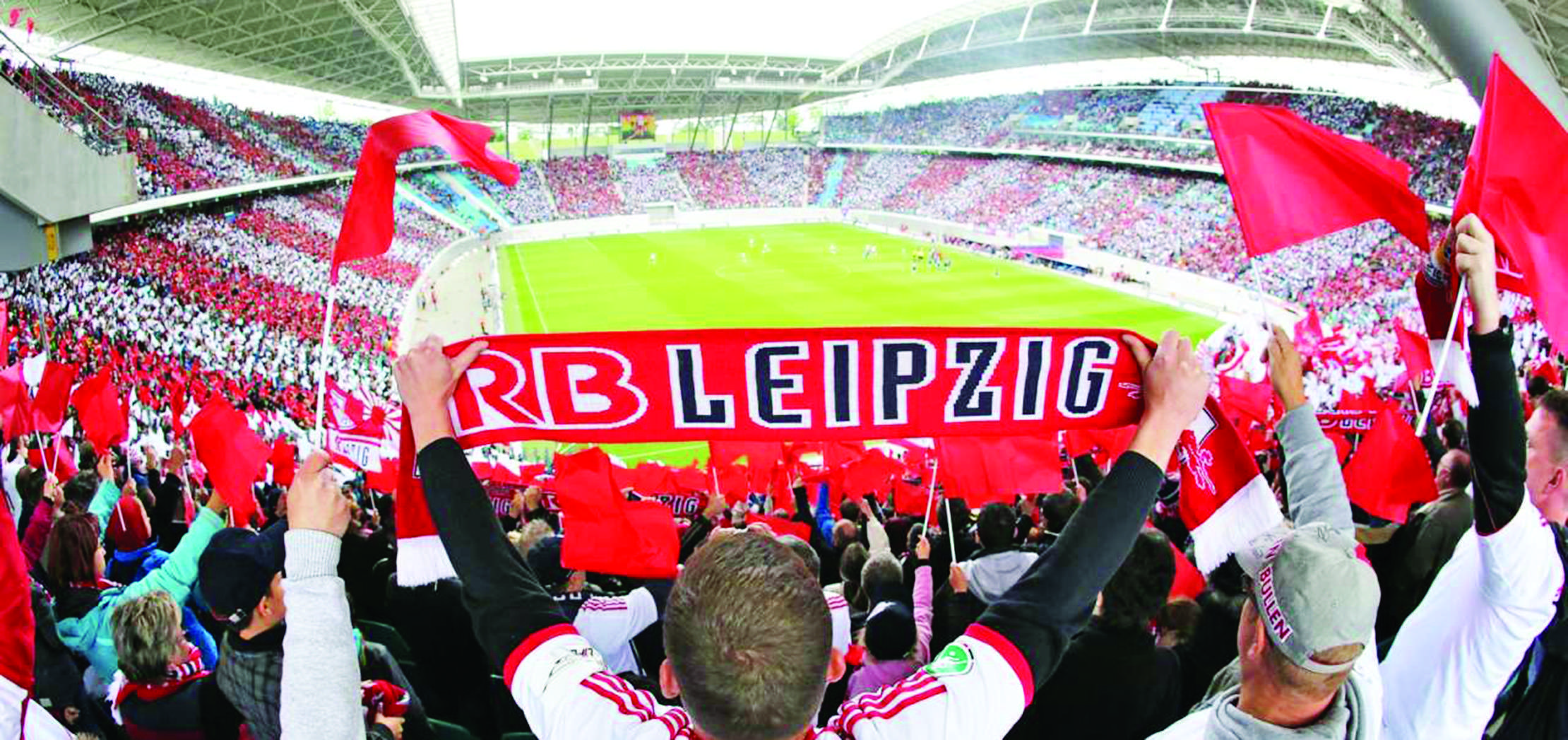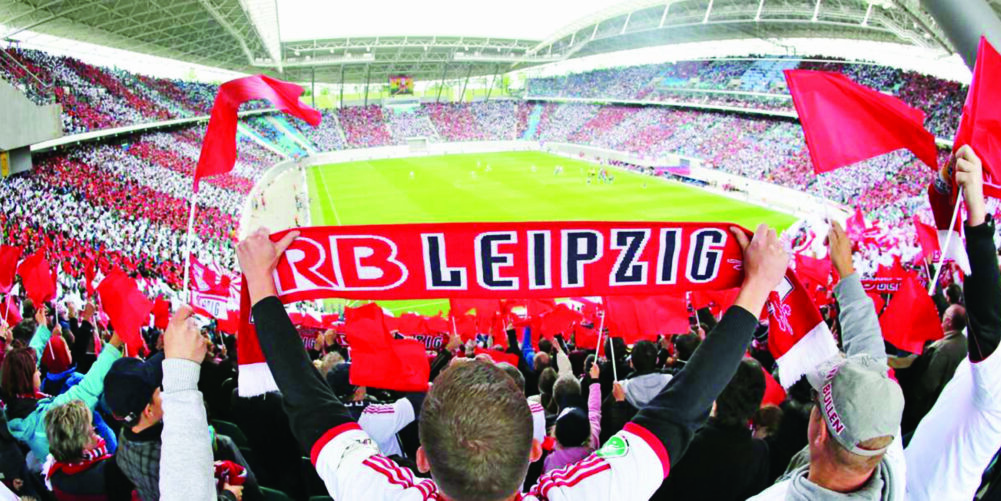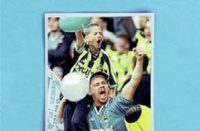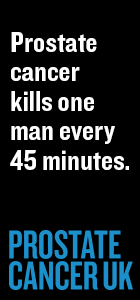
By James Rodgers
East Germany has become a bleak footballing wasteland in recent years. The facts speak for themselves, as no clubs from the former DDR have appeared in the Bundesliga since 2009 and Toni Kroos was the only member of the entire World Cup-winning squad to have been born in those parts.
So then one might assume that RB Leipzig’s meteoric rise from the fifth division to promotion favourites in the 2.Bundesliga in only four years would be a massive source of pride for the region and the country itself.
However, die Roten Bullen completely juxtapose everything that the Bundesliga has come to represent in recent years and they have been accused of killing the tradition of football in Germany. They have swiftly become the most controversial club in Germany.
Energy drinks manufacturer Red Bull bought their playing license from SVV Markranstadt, a local Leipzig-based club, in 2009. The energy drinks conglomerate changed the club’s name, crest and colours and moved them to the 44, 345 capacity Red Bull Arena (formerly Zentralstadion) in 2010. Initially, Red Bull’s licence application was refused by DFB due to their proposed name of Red Bull Leipzig. Therefore, in order to circumvent the advertising restrictions, they created the convoluted compound noun of “RasenBallsport” (literally translates as Lawn ball sport), which is conveniently shortened to portray the initials “RB”.
In addition, Germany’s vaunted 50 +1 rule maintains that the club itself must have a controlling stake so that commercial interests can’t gain control. However, until last season they only had 11 members to make decisions on behalf of the club, all of whom were Red Bull employees. Even now, with the league threatening to revoke their licence, it remains at around the 300 mark. In contrast, Schalke has 136,205 members and control of the club is firmly in the hands of the supporters.
Much of the club’s success so far has been dependent on their superior financial backing. However, their decision to install former Schalke, Stuttgart and TSG Hoffenheim manager Ralf Rangnick as sporting director and now manager has also been inspired.
Rangnick has been an undeniable success and has built the club up from scratch to arguably the most exciting and potential-filled team in the country.
From a tactical perspective, Leipzig are reminiscent of the Dortmund side who swept everything before them with Jürgen Klopp at the helm and will fit in well with the counter-attacking style which has defined the Bundesliga in recent years.
Their energetic, high-pressing game and recruitment focus on young, top level players are major contributors towards why they are regarded as such a threat to Germany’s established order. Indeed, their transfer activity has been ambitious and intelligent – and undeniably boosted by their financial backers. In the summer they garnered lots of headlines in Germany for their €8 million capture of 20-year-old striker Davie Selke from Werder Bremen.
The wunderkind, who picked up the golden boot and player of the tournament awards in Germany’s U19 European Championship victory last year, is an example of their focus on bringing through home-grown talent.
Bosses at the club also hired Frieder Schrof as their new head of youth development in order to replicate his huge successes with Stuttgart and create a reliable production line into the first team with a state of the art academy.
Nevertheless, there has been vitriolic opposition to the presence of the club in the 2.Bundesliga as a bitter campaign dubbed “Nein zu RB” has been created by ten rival supporters’ groups in that division, including the illustrious “Traditionsvereinen” Kaiserslautern, 1860 München and Nuremburg.
Rangnick attributes some of the widespread negativity towards the project being “partly fear that Leipzig might take away one of their (Bundesliga) places”.
The most severe and noble criticisms have emanated from cult club 1. Union Berlin, whose 20,000 strong support held a 15-minute silence in September, while dressed almost entirely in black ponchos to protest the actions of Red Bull Leipzig.
The fact that this was all done with the support of the club management serves to illustrate the levels of antipathy between the two clubs. In fact, they cancelled a summer friendly with Red Bull in 2011 due to fan unrest and both Nuremburg and Stuttgart followed suit. The two clubs could not be more different in their approaches. Their only similarity is the fact that they are both in areas that were formerly controlled by the German Democratic Republic.
Union’s primary criticisms of Leipzig are that they are merely a “marketing product pushed by financial interests” and that to be a true football club you need “loyalty, standing terraces, emotion, financial fair play, tradition, transparency, passion, history and independence”. Things which Leipzig are seen not to have by the wider football community.
Like the unpopular bankrolled ‘werkself’ clubs (factory-owned clubs) Wolfsburg, Leverkusen and Hoffenheim, Leipzig are also hated for the added economic advantage that comes with having private investors. However, they are also regarded as having a ‘plastic’ fan base. It is hard to muster fervent support when a club is not yet ten years old and this means that it is largely family-friendly spectators rather than fanatic supporters who turn up each week.
Yet this doesn’t seem to have proved an obstacle for Wolfsburg, who having made their Bundesliga debut in 1994 and with an average attendance only marginally higher than that of Leipzig’s now, have become one of Germany’s premier footballing forces in the last few seasons.
Additionally, Leipzig fan groups such as Rasenballisten are trying to forge an identity and more loyal, passionate support. They accept some of the negatives of Leipzig and have chosen to try and change the support and identity of the club instead of stop it. They say that “The Rasenballisten stand for football, Leipzig and fan culture, not for sponsors!”
In Leipzig, understandably, it has been viewed as a positive with 70 per cent of people asked in Leipziger Volkszeitung welcoming the initiative when it first came about.
Football had reached rock bottom in Leipzig, with former heavyweights Lokomotive Leipzig dropping down to the fourth and fifth divisions and FC Sachsen facing insolvency.
Both recognised its positive influence on the area and, when playing in the same division, neither condemned their existence.
They have also put the Red Bull Arena into regular profitable use, when it had been virtually abandoned after being done up for the 2006 World Cup. They have sold out the stadium on multiple occasions with average attendances of 25,025 in 2014/15, with an average yearly increase of 9,000 since 2012/13. This can be expected to rocket if the promotion hopefuls can achieve their goals this year.
In addition, it could be argued that they have the best chance of providing a real challenge to Bayern’s unfaltering stranglehold over the Bundesliga. Pep Guardiola’s side have been iridescent this term and their tactical nous, world-class talent and vast fan base have led them to have another commanding lead.
It is probably already a foregone conclusion that they will win the championship again this year and their detractors will say that for the Bundesliga to be regarded as one of the best leagues in the world, actual competition for the title is required.
Arguably, in lieu of Volkswagen’s economic tumult, only Leipzig have the financial backing to rival Bayern’s aggressive transfer policy and worldwide support.
Even former Bayern Munich president Uli Hoeness has said that “If it (RB Leipzig) works, it is good for all football, not only for the East” and in fact FC Hollywood might be in danger of becoming the people’s champion if a pantomime villain such as Leipzig launches a title challenge. In any case, Leipzig will be a fascinating club to watch develop over the next few


















